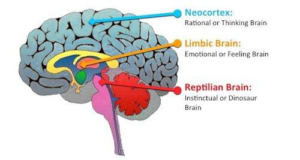Exploring the Future of Governance: A Vision for Self-Determination and Civic Responsibility
In the article The Ideal of Self-Governance, the John Templeton Foundation explores the transformative potential of self-governance in both political and economic spheres. The project, led by scholars from King’s College London, challenges traditional notions of centralized governance. By critiquing contemporary assumptions about state-led market corrections, the initiative advocates for a decentralized approach that empowers individuals and communities. It seeks to redefine the scale and scope of governance, emphasizing the power of local self-regulation in solving complex societal issues.
The project builds on the work of Nobel laureate Elinor Ostrom, advocating for polycentric governance systems where multiple actors, from governments to local groups, collaborate. This model contrasts with the traditional view that a monocentric state is best suited to address market imperfections. The research team intends to apply these insights to real-world policy debates, aiming to influence public understanding and civic participation. This academic effort is also linked to developing a civic curriculum that integrates the values of self-governance into educational systems, ensuring that future generations are equipped to engage in self-regulated governance.
The article underscores the importance of bridging theoretical research with practical applications, ensuring that the principles of self-governance are not only understood but are also implemented in diverse contexts. By fostering public debates and creating educational materials, the initiative hopes to leave a lasting influence on how governance is perceived and practiced.
Key Takeaways:
- The ideal of self-governance challenges the traditional reliance on a centralized state to solve societal problems, advocating for decentralized, community-driven solutions.
- Building on Elinor Ostrom’s work, the project promotes polycentric governance systems, where multiple actors collaborate to manage complex social and economic issues.
- The initiative aims to influence public policy and education, integrating the concept of self-governance into civic participation and governance debates.
Self-governance is not just a theoretical ideal but a practical framework that can be applied to address real-world problems, enhancing individual freedom and collective prosperity.
More details: here
~Comments always welcome…
Relevant Content:
Reference:
- Siimland (Website)



Leave a Reply